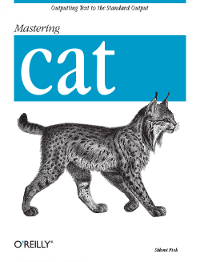So. Three weeks have gone by, and this marks the fourth. How are things so far?
I'm still adjusting, I think. And there's a lot to adjust to. I haven't been a student since the spring of 2000, and a lot has changed since then.
I don't really worry too much about being a returning adult student. For one thing, I don't want to be That Woman, the one your mother's age who sits in the front of the class ostentatiously taking notes and nodding violent comprehension and shouting out the answers to all the questions and and monopolizing the professor and trying otherwise to show what an exemplary student she is, the one she should have been thirty years ago except that flunking out/marriage/pregnancy/miscellaneous adolescent rebellion got in the way.
No, I was the perfect student twenty years ago (minus the more obnoxious habits, I hope) and it didn't really get me very far. These days, I sit in class, I listen carefully, I take down anything I haven't heard, I don't speak up unless no one else has the answer, I ask questions not for the sake of asking questions but because I really need to know something or am intensely curious about it, and I don't obsess over my grades. But what I'm thinking about when I sit down at my machine and log on to the Windows XP VM two nights a week in class, or get into the online course website other evenings, is what I can get out of this session, how it will affect what I want to do later.
I do things differently, though. When asked for freehand drawings of both the exterior and internal workings of my home PC, I supplied diagrams created using PowerPoint. "I'm a technical writer," I said to my instructor. "This is how I do stuff." Freehand just wasn't going to cut it. I was a little startled that no one else in the class had thought to do this--it seems that if you have tools at your disposal, you should do things properly, and it really didn't take me that long.
One thing I'm still getting used to is the treadmill of studying, homework, studying, homework--and taking two of my classes online kind of complicates things. I have to be careful to check the schedule diligently for unexpected assignments, as there is no physical classroom where the teacher reminds everyone.
I'm also getting used to just how cut-and-dried these courses are: either you get something right, or you don't. Either it's true or false. Either the walkthrough or program works, or it doesn't. I suppose you could have points subtracted for poorly-written code, but still, it's a much less subjective system of evaluation than I was ever used to, and I find the decrease in the number of potential areas rather gratifying, not to mention the immediate feedback from those exercises which are graded automatically. I realize that there are other intangible ways in which I might be evaluated, but at least I'm not second-guessing myself so much about whether I've mastered the material.
Mastering the material, however, is one thing. Mastering Linux or VBasic programming is a horse of an entirely different color. X has warned me about not just blindly following recipes but becoming aware of similarities, parallels, differences in operating systems and languages, fundamentals that are universal (or nearly so). If something goes wrong, I don't want merely to figure out how to fix it and move on (though sometimes that's expedient and necessary): I want to understand what's gone wrong, to gain more insight into the system, so that I can handle similar or related problems later on. So as I do my homework, I try to make myself understand as much as possible, because I want to be able to call on every bit of it when necessary.
And then there's the time management issue. In the humanities, graduate seminars take place once a week. For undergraduate classes, you can often do all your preparation in one sitting--read through
Paradise Lost or the "Cyclops" section of Ulysses or whatever in a single evening, scribbling marginalia as you go. But this is different. I tried doing all my programming homework in a couple of days, on the weekend, and discovered the following weekend that life had interfered to such an extent that most of what I'd learned had slipped through my fingers and I had to go back and review it all over again. So I'll do what my Linux instructor strongly urges and try spreading out the whole thing over the course of a week, working for half an hour to an hour on each subject every single night. As I've said before, practice makes perfect.



